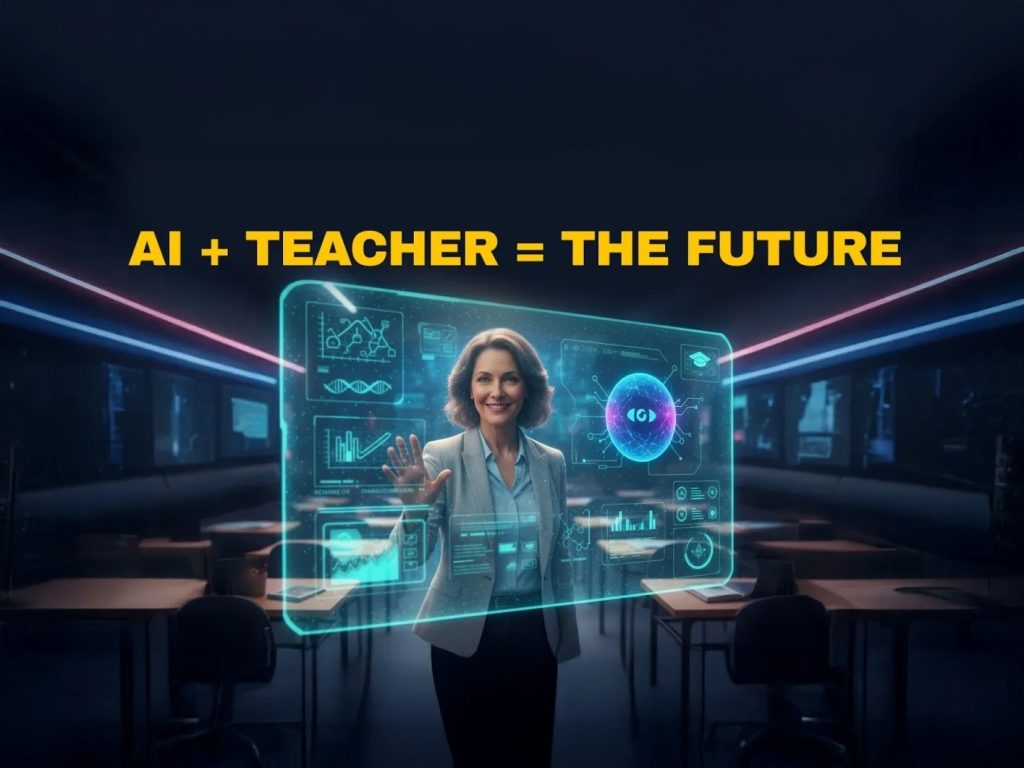AI for Personalized Education – The Future of Learning
Today, we’re diving into the future of education—and how artificial intelligence (AI) is personalizing learning like never before.
From adaptive learning platforms to intelligent tutoring systems, AI is ushering in a new era of education—one where every student learns at their own pace, through experiences tailored just for them.
Imagine classrooms that adapt to you—not the other way around.
Education Is Evolving
Traditional classrooms were once defined by uniform textbooks, standard lectures, and one-size-fits-all teaching. But with AI, education is becoming more flexible and dynamic. Every student’s strengths, weaknesses, and pace are now analyzed in real time to craft individualized learning paths.
We are moving from standardization to personalization—a shift that could redefine how we think about learning itself.
What Is Personalized Education?
Personalized education adapts the learning experience to each student’s unique needs, interests, and progress. It was once an ambitious idea limited by resources and human capacity. Today, AI makes it possible at scale.
By continuously collecting and analyzing data, AI identifies where students struggle, where they excel, and how best to support them through customized lessons and feedback.
The Role of AI in Personalization
AI in education goes beyond automation—it’s about insight. By using data-driven analytics, AI systems assess student progress, predict challenges, and provide immediate feedback.
Some platforms dynamically adjust the difficulty of questions, recommend new resources, or simulate real-world applications. Chatbots and virtual tutors assist students 24/7, while teachers gain dashboards that visualize class performance and highlight learning gaps.
Benefits for Students and Teachers
For students, AI fosters mastery-based learning, helping them gain confidence as they progress at their own pace. Instead of memorization, learning becomes about curiosity, problem-solving, and creativity.
For teachers, AI reduces routine work—like grading and attendance tracking—allowing them to focus on mentorship, critical thinking, and emotional support. It’s not about replacing teachers but empowering them with better insights and tools.
Challenges and Ethical Questions
However, AI in education isn’t without challenges. Equity remains a concern—students from under-resourced backgrounds may not have the same access to technology.
Algorithmic bias can lead to unfair assessments if data is incomplete or skewed. Data privacy and the protection of student information are equally pressing issues. As we integrate AI, ensuring transparency, accountability, and ethical use must remain top priorities.

The Future of Learning: Human + AI
The future of education lies in collaboration—between humans and AI. AI will not replace educators; it will amplify their capabilities, enabling personalized, inclusive, and creative learning environments.
When combined with human empathy and guidance, AI becomes a force that helps every learner reach their fullest potential.
As we move forward, AI is poised to make education more personalized, equitable, and engaging than ever before. The goal isn’t to let machines teach—it’s to use intelligent systems to help every learner flourish.
If you found this exploration insightful, don’t forget to like, share, and subscribe for more on technology and the future of learning.
Question for viewers:
Do you think AI will make classrooms more creative and inclusive?
For further assistance, visit our channel and refer the video
How AI Is Helping Teachers Teach Better – Not Replacing Them

Share This :
References
Chassignol, Maud, et al. “Artificial Intelligence Trends in Education: A Narrative Overview.” Procedia Computer Science, vol. 136, 2018, pp. 16–24.
Holmes, Wayne, et al. Artificial Intelligence in Education: Promises and Implications for Teaching and Learning. UNESCO, 2019.
Luckin, Rose, et al. Intelligence Unleashed: An Argument for AI in Education. Pearson, 2016.
UNESCO. AI and Education: Guidance for Policymakers. United Nations Educational, Scientific and Cultural Organization, 2021.
Zhang, Ke, et al. “Artificial Intelligence in Education: Impact and Challenges.” Educational Technology Research and Development, vol. 69, no. 6, 2021, pp. 281–301.


